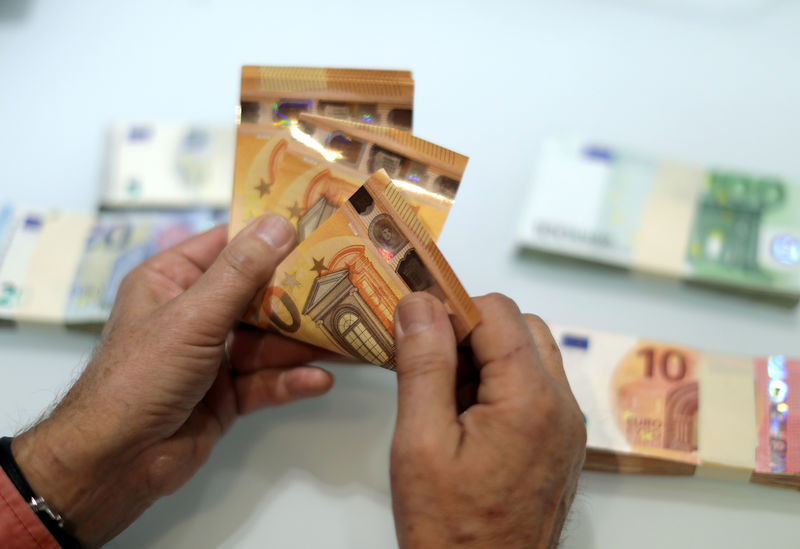By Peter Nurse
Investing.com - The euro has posted gains Thursday amid talk of a new debt instrument to combat the coronavirus outbreak as the death toll rises and the economic damage becomes more stark.
At 4:10 ET (0810 GMT), EUR/USD traded at 1.0938, up 0.5%.
Elsewhere, the U.S. Dollar Index, which tracks the greenback against a basket of six other currencies, stood at 100.580, down 0.4%. USD/JPY fell 0.7% to 110.44, while GBP/USD traded at 1.1950, up 0.5%.
Europe has become the fiercest battleground in the war against the Covid-19 outbreak, with well over 180,000 cases confirmed. The death toll keeps rising across the region, with Italy now registering a higher number than China, and Spain not far behind. However, the rate of new infections appears to be slowing rapidly in most countries across the continent, with the exception of the U.K., analysts at Pantheon Macroeconomics said in a note to clients.
The measures designed to combat the deadly virus has brought all the key EU economies to a standstill. The latest data show the extent of the damage, with German consumer morale hitting its lowest level since 2009 while French business confidence plunged at a record pace in March, to its lowest since 2014.
While the ECB has launched a gigantic new package of quantitative easing, it’s clear the extent to which individual countries can combat the pandemic depends on the strength of their balance sheets.
With this in mind, nine European countries late Wednesday called upon their EU counterparts to issue so-called corona bonds — a new debt instrument that would combine securities from different countries and put the firepower of German taxpayers behind the joint borrowing.
“We need to recognize the severity of the situation and the necessity for further action to buttress our economies today,” the heads of state of Italy, France, Belgium, Greece, Portugal, Spain, Ireland, Slovenia and Luxembourg said Wednesday.
“The case for such a common instrument is strong, since we are all facing a symmetric external shock, for which no country bears responsibility, but whose negative consequences are endured by all,” the nine leaders said.
These bonds would be controversial, with policymakers in countries such as Germany, the Netherlands and Austria very wary of the idea of issuing debt together with highly leveraged nations, such as Italy, Greece and Portugal.
The move came a day after Germany, Austria and the Netherlands shut down discussion of such a step at a meeting of eurozone finance ministers.
Attention now swings to a key conference call between the 27 leaders of the European Union later Thursday.
The Bank of England will also hold its regular Monetary Policy Committee meeting, but is expected to hold fire as it assesses the success of the measures it's taken so far.
